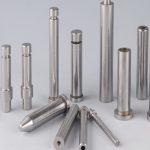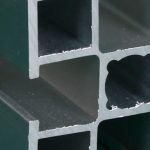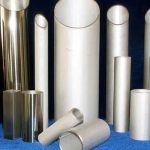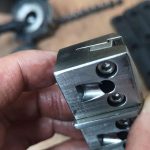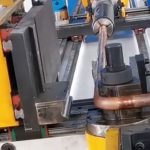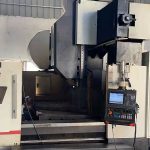How To Choose The Sealing Method In The Machining Design?
|
The sealing problem of equipment always exists with the operation of the equipment. Today PTJ specially sorted out the various sealing forms, use ranges and characteristics commonly used on equipment for everyone. They are packing seal, mechanical seal, dry gas seal, labyrinth seal, oil seal, dynamic seal and spiral seal. |
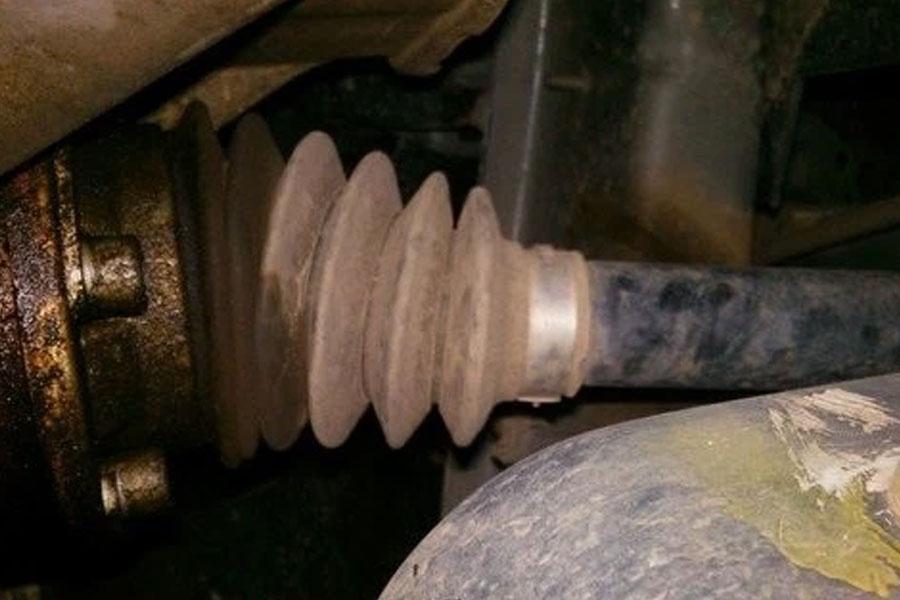
1.Packing Seal
According to its structural characteristics, packing seals can be divided into:
- Soft packing seal
- Hard packing seal
- Formed packing seal
A. Soft packing seal
Soft packing type: Packing
Packing is usually woven from softer threads and filled in the sealed cavity by strips with a square cross-sectional area. The pressing force is generated by the gland to compress the packing and force the packing to be pressed on the sealing surface (shaft). On the outer surface and the sealed cavity), the radial force for the sealing effect is generated, thus playing a sealing role.
Applicable occasions for soft packing:
The packing material selected for packing determines the sealing effect of the packing. Generally speaking, the packing material is limited by the temperature, pressure and pH of the working medium, and the surface roughness and eccentricity of the mechanical equipment on which the packing works And line speed, etc., will also have requirements for the choice of packing material. Graphite packing can withstand high temperature and high pressure, and is one of the most effective products to solve the problem of high temperature and high pressure sealing. Corrosion resistance, excellent sealing performance, stable and reliable function. Aramid packing is a kind of high-strength organic fiber. The woven packing is impregnated with polytetrafluoroethylene emulsion and lubricant. Polytetrafluoroethylene packing is made of pure polytetrafluoroethylene dispersion resin as raw material, first made into raw film, and then twisted, braided and woven into packing. It can be widely used in food, pharmaceuticals, papermaking, chemical fiber, etc. Cleanliness requirements, and valves and pumps with strong corrosive media.
B. Hard packing seal
There are two types of hard packing seals: split ring and split ring.
2.Mechanical Processing Seal
The mechanical seal is always composed of two parts, a rotating part (yellow part) and a stationary part (orange part). The two relative moving and static ring surfaces become the main sealing surface of the seal.
Mechanical seals are also called end face seals. According to relevant national standards, they are defined as: at least a pair of end faces perpendicular to the axis of rotation are kept in close contact and slide relative to each other under the cooperation of fluid pressure and the elastic force (or magnetic force) of the compensation mechanism and the auxiliary seal. Constructed to prevent fluid leakage.
3.Dry Gas Seal
Dry gas seal, or “dry running gas seal”, is a new type of shaft end seal that uses slotted sealing technology for gas sealing, and is a non-contact seal.
Features:
Good sealing performance, long life, no need for sealing oil system, low power consumption, simple operation and low operation and maintenance costs. As a maintenance-free sealing system that does not require any sealing end face cooling and lubricating oil, dry gas seals are replacing floating ring seals and labyrinth seals to become the main seal of the shaft seal of high-speed centrifugal compressors in the petrochemical industry.
Applications:
High-speed fluid machinery such as centrifugal compressors are suitable for working conditions where a small amount of process gas leaks into the atmosphere without harm, such as air compressors, nitrogen compressors, etc.
4.The Labyrinth Seal
The labyrinth seal is to set a number of circular sealing teeth arranged in sequence around the rotating shaft. A series of interception gaps and expansion cavities are formed between the teeth and the teeth. When the sealed medium passes through the gap of the tortuous labyrinth, it produces a throttling effect to prevent leakage.
Labyrinth seal is the most basic sealing form between stages and shaft ends of centrifugal compressors. According to different structural characteristics, it can be divided into four types: smooth, zigzag, stepped and honeycomb.
A. Smooth labyrinth seal
The smooth labyrinth seal has two structures: integral and insert. It has a simple structure and is easy to manufacture, but the sealing effect is poor.
B. Zigzag labyrinth seal
The zigzag labyrinth seal is also divided into two structures: the whole and the insert. The structural feature of this labyrinth seal is that the protruding height of the sealing teeth is different, and the high and low teeth are arranged alternately, and the matching shaft surface is a special concave-convex groove Groove, the structure of the high and low teeth matched with the concave-convex groove makes the smooth sealing gap into a zigzag type, therefore, the flow resistance is increased and the sealing efficiency is improved. But it can only be used in cylinders or partitions with horizontally split surfaces, and the sealing body must also be made into a horizontally split type.
C. Stepped labyrinth seal
From the structural analysis, the stepped labyrinth seal is similar to the smooth labyrinth seal, but the sealing effect is similar to the zigzag labyrinth seal, and it is often used in the impeller cover and the balance disc.
D. Honeycomb labyrinth seal
The sealing teeth of the honeycomb labyrinth seal are welded into a honeycomb shape to form a complex-shaped expansion chamber. Its sealing performance is better than the general sealing form, and it is suitable for occasions with large pressure differences, such as the balance disc seal of a centrifugal compressor. The honeycomb labyrinth seal has a complicated manufacturing process, high strength of the sealing sheet, and good sealing effect.
5.Oil Seal
The oil seal seal is a self-tightening lip seal with simple structure, small size, low cost, convenient maintenance, and low resistance torque. It can not only prevent the leakage of the medium, but also prevent the intrusion of external dust and other harmful substances. There is a certain degree of compensation for wear, but it is not resistant to high pressure, so it is generally used on chemical pumps in low pressure occasions.
6.Power Seal
When the chemical pump is in operation, the pressure head produced by the auxiliary impeller balances the high-pressure liquid at the outlet of the main impeller, thereby achieving sealing. When parking, the auxiliary impeller does not work, so it must be equipped with a parking seal device to solve the chemical pump leakage that may occur during parking. The auxiliary impeller has a simple sealing structure, reliable sealing and long service life. The chemical pump can achieve drip-proof water during operation, so it is often used in chemical pumps that transport impurity media.
7.Spiral Seal
Spiral seal is also a form of dynamic seal. It is a spiral groove that is machined on a rotating shaft or a sleeve of the shaft, and a sealing medium is filled between the shaft and the sleeve. The rotation of the shaft causes the spiral groove to produce a conveying effect similar to that of a pump, thereby preventing leakage of the sealing liquid. The size of its sealing ability is related to the helix angle, pitch, tooth width, tooth height, the effective length of the tooth and the size of the gap between the shaft and the sleeve. Since there is no friction between the seals, the service life is long, but due to the limitation of structural space, the spiral length is generally short, so its sealing ability is also limited. When the pump is used at reduced speed, its sealing effect will be greatly reduced.
Link to this article: How To Choose The Sealing Method In The Machining Design
Reprint Statement: If there are no special instructions, all articles on this site are original. Please indicate the source for reprinting:https://www.cncmachiningptj.com/,thanks!
 PTJ® provides a full range of Custom Precision cnc machining china services.ISO 9001:2015 &AS-9100 certified. 3, 4 and 5-axis rapid precision CNC machining services including milling, turning to customer specifications,Capable of metal & plastic machined parts with +/-0.005 mm tolerance.Secondary services include CNC and conventional grinding, drilling,die casting,sheet metal and stamping.Providing prototypes, full production runs, technical support and full inspection.Serves the automotive, aerospace, mold&fixture,led lighting,medical,bicycle, and consumer electronics industries. On-time delivery.Tell us a little about your project’s budget and expected delivery time. We will strategize with you to provide the most cost-effective services to help you reach your target,Welcome to Contact us ( [email protected] ) directly for your new project.
PTJ® provides a full range of Custom Precision cnc machining china services.ISO 9001:2015 &AS-9100 certified. 3, 4 and 5-axis rapid precision CNC machining services including milling, turning to customer specifications,Capable of metal & plastic machined parts with +/-0.005 mm tolerance.Secondary services include CNC and conventional grinding, drilling,die casting,sheet metal and stamping.Providing prototypes, full production runs, technical support and full inspection.Serves the automotive, aerospace, mold&fixture,led lighting,medical,bicycle, and consumer electronics industries. On-time delivery.Tell us a little about your project’s budget and expected delivery time. We will strategize with you to provide the most cost-effective services to help you reach your target,Welcome to Contact us ( [email protected] ) directly for your new project.
Link to this article:How To Choose The Sealing Method In The Machining Design
Reprint Statement: If there are no special instructions, all articles on this site are original. Please indicate the source for reprinting:Alloy Wiki,thanks!^^


